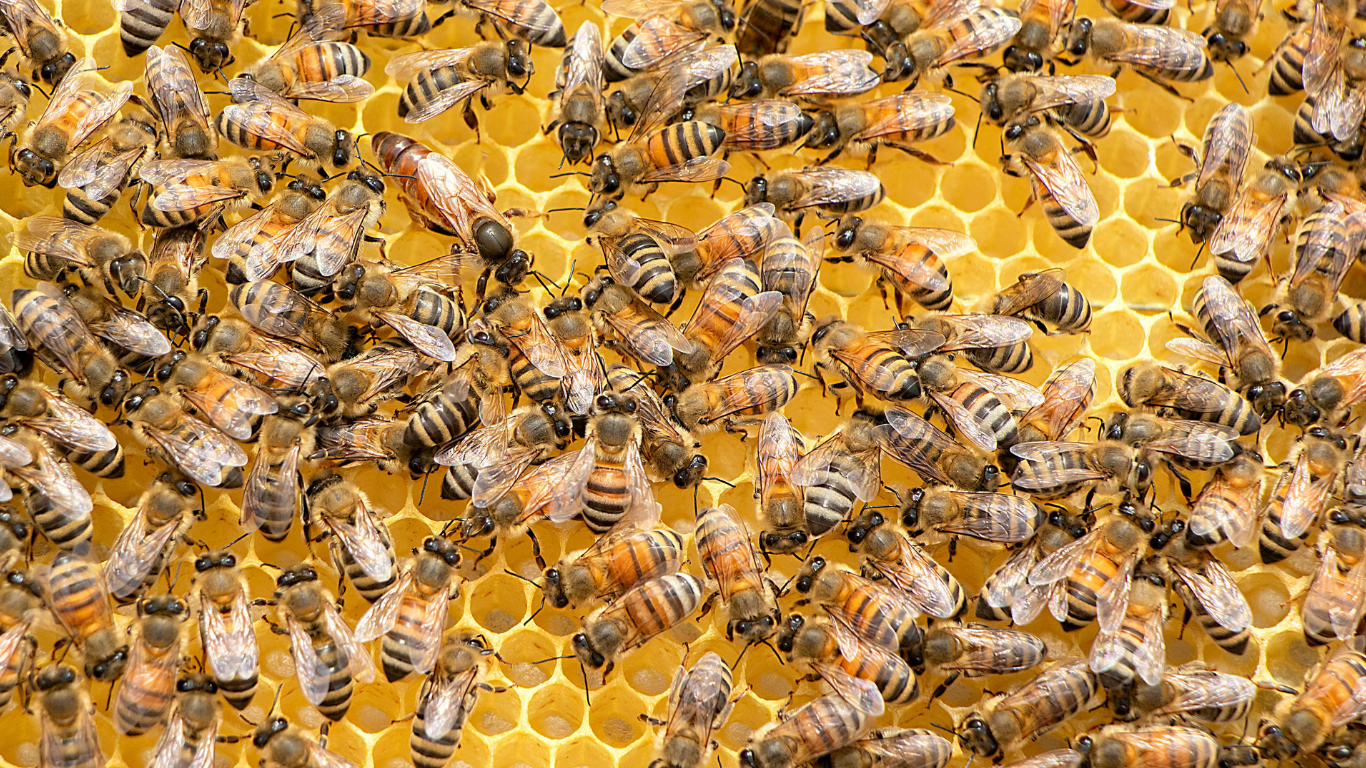Honey's journey begins as nectar in a flower. Working together as a team, bees communicate with bumps and noises to find the best flowers for the job. Once they've found the best ones, they use their tongues to suck the nectar from the flower’s nectary. And then the magic begins! The nectar travels to the bee’s honey stomach, where the sugars are broken down in a process called inversion.
It is then brought back to the hive where house bees pack it into hexagon shaped beeswax honey cells. The structure of the hive and constant buzzing of the bees' wings results in evaporation, which creates our wonderful honey.
Beekeepers harvest the remaining honeycomb frames that bees don't need by placing the honeycombs in a centrifuge that spins the frames, forcing honey out of the comb. The mixture is then strained and bottled.





